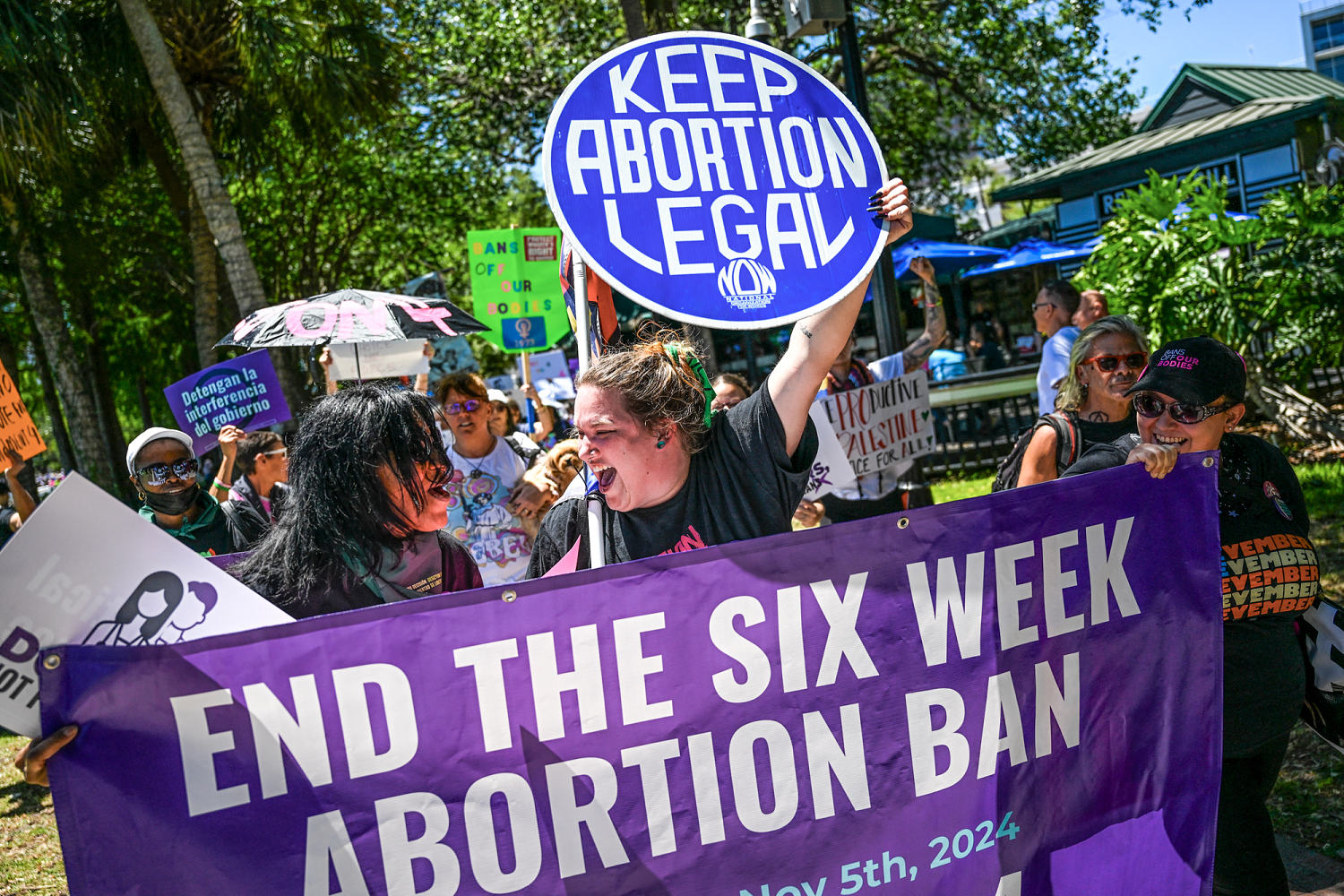Florida’s 6-week abortion ban could set up clash with shield law states


Now, the closest abortion providers for women in many Southern states will be in Illinois, said Michelle Colón, executive director of SHERo Mississippi, which helps women access reproductive health care. Women with low incomes may not be able to afford the trip, she said.
Florida women who travel out of state for abortion can expect to pay more than $2,000 in medical costs, as well as travel and child care expenses, said Dr. Jennifer Lincoln, an OB-GYN and founder of Three for Freedom, an online hub that helps people learn how to access mail-order birth control, morning-after pills and abortion pills.
About 84,000 women had abortions in Florida last year, accounting for about 1 in every 12 abortions in the country. Even with telehealth, out-of-state abortion providers will be hard-pressed to serve that many additional patients, she said.
“We can’t just pretend that 84,000 patients are going to be able to be easily absorbed into other clinics across the country,” Lincoln said. “Those who can’t travel or who can’t access pills will be forced to give birth or may resort to unsafe methods of pregnancy termination.”
A legal clash
Florida physicians who violate the state’s abortion law — which includes exceptions for rape, incest and human trafficking up to 15 weeks of pregnancy, as well as later in the pregnancy to save the life of the mother — can be jailed for up to five years.
If an out-of-state doctor were to prescribe abortion pills for a Florida patient, Florida’s attorney general could ask law enforcement in the state where the doctor practices to extradite the provider for prosecution, or for help with a civil or criminal investigation, Rebouché said.
Prosecuting doctors in states with shield laws could prove more difficult. Although its attorney general could still charge an out-of-state doctor with breaking the law, Florida would not be able to bring the doctor to trial if it does not have jurisdiction over that provider, Rebouché said. States with shield laws have vowed not to extradite doctors who perform abortions, as long as they are not fleeing from a state where the practice is banned. A doctor who resides in a state with a shield law would not be considered a fugitive, even if prosecutors in another state try to charge him or her with breaking their state’s abortion law, she said.
That’s a huge change from the way states normally operate, she said. State law enforcement agencies typically cooperate with one another, agreeing to extradite accused criminals to other states for trial. A state like Florida could end up suing a shield state for interfering with its laws, she said, though courts have not yet considered a challenge to any state’s abortion shield law.
The Florida attorney general’s office did not respond to a request for comment.
Doctors who provide telehealth services are usually only allowed to treat patients in the same state, said Harry Nelson, a Los Angeles attorney who specializes in health law.
In March, attorneys general from 16 conservative states, including Florida, wrote to Maine officials to protest against that state’s shield law, which was passed in April and which protects both providers of abortion, as well gender-affirming care. The letter, which focused on gender-affirming care and doesn’t mention abortion, claims that Maine’s shield law violates the Constitution’s full faith and credit clause, which requires that state courts respect the laws and judgments of courts from other states.
“The federal Constitution, in short, precludes Maine’s novel effort at state-sanctioned culture war litigation tourism,” they wrote.
Because abortion shield laws are new and have never been tested in court, no one can say how judges will rule, Rebouché said. A conflict between states could wind up, like so many abortion disputes, back in front of the Supreme Court.
“We are opening up a can of worms if states are going to pick and choose which of their neighbors’ laws to respect,” said Kristi Hamrick, vice president of Students for Life Action, a major anti-abortion group. “The attempt by some states to create a little safe haven for abortion will not be successful. I think we will end up in court.”
Florida voters will have a chance to weigh in this November, when a constitutional amendment to protect abortion access will be on the ballot.







